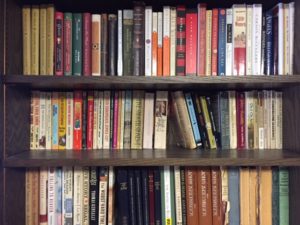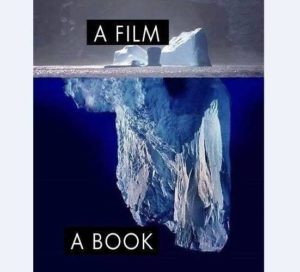I wonder if liberals (Democrats and those leaning left) truly do not see media bias. It is understandable that when the media reflects your personal world view, bias would not be obvious to you. You would tend to see news as exactly that – news presented in a straightforward, factual manner. It is just the way it is.
I also think it is entirely possible for someone to remain fully within the Blue Bubble. If all the news and commentary about social issues you hear comes from liberal biased main stream media, how would one even know that there are other perspectives? It would be easy to see any mention of opposing views as being totally right wing nut stuff – tabloid journalism/fake news – and dismiss it without consideration.
There is No Red Bubble
Alternately, I think there really can be no real Red Bubble in America. While there is conservative bias, there is ever-present awareness of another perspective. Every time an American turns on a TV, opens a newspaper, glances at magazines in the rack at the store, or thumb through them in the waiting room of a Doctor’s office, they get left biased information.
So it is rather difficult for someone to stay within a Red bubble. You would have to live a very isolated life, with no internet or TV to even come close to avoiding liberal news. You can’t even watch a movie or a TV sitcom without being bombarded with liberal ideology.
It takes intentional effort to find, read and watch conservative news reporting and commentary. You have to become educated about reliable sources and where to find them. Google searches put liberal stuff at the top. You have to scroll way down to find something conservative. Some conservative information is actually filtered and censored by liberal platforms. You are just not going to see it at all. I have even read stories, then tried to go back for another look and it was nowhere to be found.
The Same Story?
For conservatives, there is constant awareness of the obvious left-leaning bias of main stream media. There have been times when I have read about a current event through a conservative platform, then later read an article or heard a news report about it, and I literally asked myself if this was about the same thing.
After seeing main stream media reports, there is little incentive for a liberal to seek out more conservative commentaries, and ample motivation to dismiss them before hearing them as right wing biased criticism. This happens all the time.
Headlines
The media realizes that most people today don’t have the patience to read lengthy articles. They like short news reports. They mostly read headlines. So the headlines send the message. And those messages are not generally neutral. Look closely at the value based wording. They are telling us, through the headline, not really what happened, but more what we should think and feel about what happened.
Unbiased news should of course, present all sides of an issue in a neutral way. They should tell us the facts of what happened – the general facts in the headline, and critical details in the story. We can then think about and come to our own conclusions about whether it is good or bad.
Usually one must read an entire article to find somewhere, usually about 2/3 to 3/4 the way through, some critical details. There might be a brief statement about a counter argument or opposing point of view. Or these “hidden” details might actually lead one to question the conclusion of the headline. Such details might even lead someone to a very different conclusion. Media is counting on readers not making it to the point where they might encounter something which really makes them think. And they can feel justified that they presented both sides.
Finding Balance
The more friends you have on social media, conservative or liberal, the more likely you will see articles that they share. Some of these are good sources and some may be radical. Unfortunately, it seems that liberals tend to throw all of conservative sources in the radical right-wing trashbin, because they are not what they hear from main stream media. It can be a good thing to read what others are reading. It might lead you to question whether your opinion is right. Even if it doesn’t change your mind, you at least might understand others better.
I find it sad to see someone “unfriend” those who post something they disagree with. This tends to shrink their pool of ideas and settle them more firmly into the bubble. Why can’t we have different perspectives and opinions and respect each other?
I have been pleasantly surprised by my local newspaper. Not too long ago, I think because of a change in editorial staff, they started including occasional conservative opinion pieces. Nothing like reading a few of those to realize how lacking those voices had been. It was almost like suddenly seeing colors among the gray. Reading a liberal and a conservative piece on the same topic next to each other is very enlightening – I highly recommend it. It gives one the opportunity to hear both sides and actually form an independent opinion. That is, of course, if one reads them with somewhat of an open mind.
I think it would be wonderful to have a civil discussion of all sides of an issue. But first, we must get out of bubbles and realize that there are multiple perspectives.


